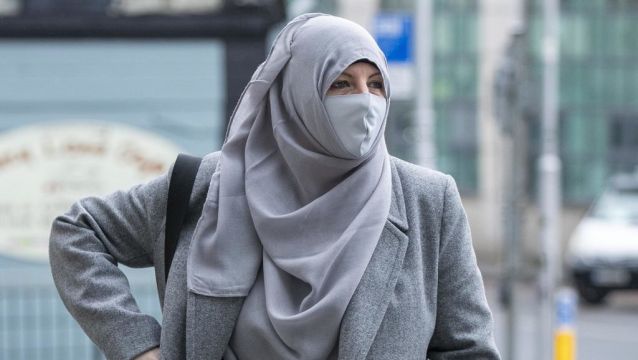An FBI agent has told the Special Criminal Court that it was "beyond suspicion" that former Irish soldier Lisa Smith had joined terrorist organisation Isis when she was in Syria.
Agent B, who cannot be identified because he is involved in counter terrorism operations around the world, told Ms Smith's defence counsel Michael O'Higgins SC that he was in Syria in 2019 when Ms Smith was being held in the Ain Issa camp.
When the witness said that Ms Smith had "joined Isis", Mr O'Higgins put it to him that that was just his suspicion and the agent replied: "It was beyond suspicion at this point."
Five counter terrorism FBI agents gave evidence on Wednesday and Thursday this week during legal argument in the trial.
Most of the evidence that the prosecution sought to lead from the FBI agents was ruled inadmissible by the court. However, during legal argument the agents were cross-examined about their knowledge of Ms Smith.
Agent M told Mr O'Higgins that the FBI knew Ms Smith had been a member of the Irish army, and they believed she could have been recruited to train members of The Khatibah, an all-female Isis battalion operating in Syria.
Syrian camps
When Mr O'Higgins put it to Agent M that Ms Smith and the other women living in Syrian camps were living in "really difficult circumstances,"
Agent M replied: "Every one of these people travelled to join a terrorist organisation." When challenged, the agent said he was basing his statement on his "training and expertise".
Agent C gave evidence that was accepted as admissible in the trial. He told Sean Gillane SC, for the prosecution, it was known that Ms Smith met American Islamic convert and Isis propagandist John Georgelas, aka Abu Hassan, in 2012 through Facebook.
She travelled to Turkey in September 2013 to meet Georgelas, and together they crossed the border into Syria.
She later went to Tunisia and then back to Ireland in September 2014 only to return to the Middle East in October 2015.
By June 2016 she was living in Syria, had married and was living in Raqqa. She left Raqqa in February 2017 and moved to various places before ending up in a refugee camp known as Al-Hawl and then Ain Issa.
Return to Ireland
The court also heard on Friday from interviews Ms Smith gave to gardaí at Kevin St Garda Station following her return to Ireland on December 1st, 2019.
She had been arrested at Dublin Airport on suspicion of membership of Isis, a terrorist organisation.
Sgt Carrie O'Connor told Mr Gillane that gardaí asked Ms Smith why she travelled to Syria when the "brutality" of Isis was at that time well known through news reports and from videos on the internet.
Gardaí went through a series of Isis atrocities carried out in the months before Ms Smith travelled to Syria in 2015, including the Charlie Hebdo massacre in Paris in January, the burning alive of a Jordanian pilot in February and the murders of 33 people including three Irish people at a resort in Tunisia in June.
These events, gardaí said, were "headline news all over the world".
Ms Smith said she felt a religious obligation to travel, and she was swayed by what she was told by Georgelas, whose word she trusted. She said she also saw videos online of people in the Islamic State enjoying themselves and living normal lives.
Online videos
She said she didn't know if the things on the news were really carried out by Isis and a lot of people told lies about Muslims to make them look bad. She said: "I didn't really know what was happening there at the time. All I knew was that I had an obligation to go."
She said she saw the videos online and was "horrified by them" but she also believed what Abu Hassan told her, that the caliphate was real or "legit". She said Hassan took her under his wing, and she believed he wouldn't lie to her or lead her astray.
She said she believes the caliphate will come some day; it could be next year or in a thousand years, but she believed that this caliphate was real.
She said that the leader of the caliphate, Abu Bakr al-Baghdadi, fulfilled the criteria for a "caliph" or leader and when Muslims saw how quickly the caliphate expanded they believed it was real.
She said: "It was a trap. To trap all the people who made hijrah and slaughter them."
The trial continues in front of Mr Justice Tony Hunt, Judge Gerard Griffin and Judge Cormac Dunne at the non-jury court.







